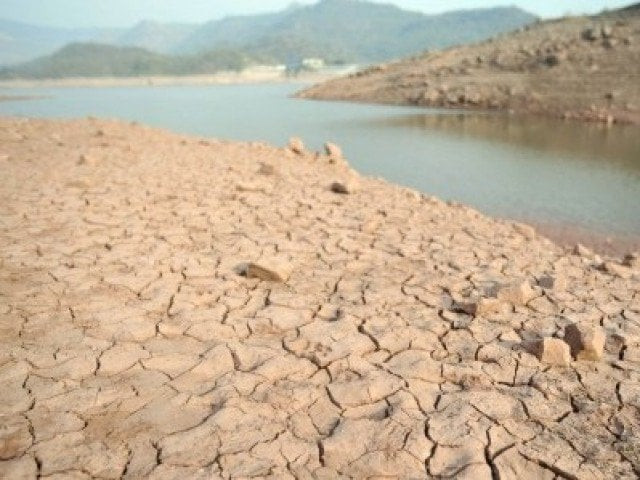Pakistan vulnerable to desertification
Mushahid calls for concerted efforts to tackle problem

Mushahid calls for concerted efforts to tackle problem. PHOTO: FILE
This was stated by the Climate Change Minister Senator Mushahidullah Khan at the 13th session of the United Nations Convention to Combat Desertification (UNCCD) in Ordos, China.
Afforestation, sustainable animal grazing, rainwater harvesting and effective monitoring systems can effectively help fight the desertification, Mushahidullah suggested.
‘Pakistan is close to becoming a desert’
“Desertification is a silent, invisible crisis and the leading impediment to overcoming food security, securing livelihoods, ensuring social stability and achieving development goals,” he said.
Mushahidullah said that desertification is triggered by overgrazing, deforestation, depleting groundwater and surface run-off. “The world should recognise it as an inextricable part of the climate change,” he added.
The climate representatives from around 195 countries have assembled in China to devise a global strategic framework that will guide global ‘desertification combating efforts’ under the convention from 2018-2030.
The minister, along with a delegation of climate experts, represented Pakistan at the convention. They highlighted issues including desertification, land degradation and land erosion and deliberated on how Pakistan could mitigate the impact of these problems.
The United Nations to Combat Desertification (UNCCD) was established in 1994 and is the sole legally binding international agreement linking environment and development to sustainable land management.
The convention specifically addresses the arid, semi-arid and dry sub-humid areas, known as dry-lands, where some of the most vulnerable ecosystems and people can be found.
Four forestry initiatives Pakistan is taking to fight climate change
According to UNCCD reports, desertification — land degradation in arid and semi-arid areas — is a pressing global environmental challenge, currently affecting an estimated 100-200 million people. One-third of the global population — about 2 billion in number — might get affected by the process.
He told the participants that, like many African and Asia-Pacific countries, desertification had emerged as a major socio-economic and environmental challenge in Pakistan, devouring vast stretches of rich fertile lands and risking country’s food security efforts.
“Pakistan is facing daunting challenges to combat desertification, with more than 80 per cent of its classified land – arid and semi-arid – was getting severly affected by desertification, land degradation and recurring droughts.
The dry-lands in parts of Balochistan, Sindh, Khyber Pakhtunkhwa, and Punjab are experiencing increased land degradation and desertification,” Khan told the high-level ministerial segment of the UNCCD.
With rapid growth in the population, the effects of climate change were taking hold and desertification had become a major source of concern for the leadership.
“Pakistan’s agricultural land is vulnerable to desertification - the process by which arable land becomes desert due to drought, deforestation, inappropriate agricultural practices, the effects of climate change, or a combination of all of these,” he added.
As part of the global efforts to tackle desertification and drought, the Pakistani government had devised a five-year Sustainable Land Management Programme (SLMP) which was currently in the second phase of implementation.
Creating awareness on 'Desertification Day'
The five-year project was being supported by the Global Environment Facility and the United Nations Development Programme (UNDP).
Mushahidullah Khan further said that SLMP aims to follow the guidelines given by the UNCCD and adopt sustainable land management practices across arid and semi-arid landscapes.
The government is supporting the formulation of comprehensive land-use policies, providing training to individuals and institutions, and helping farmers adopt better irrigation practices at the local level.
Published in The Express Tribune, September 13th, 2017.



















COMMENTS
Comments are moderated and generally will be posted if they are on-topic and not abusive.
For more information, please see our Comments FAQ